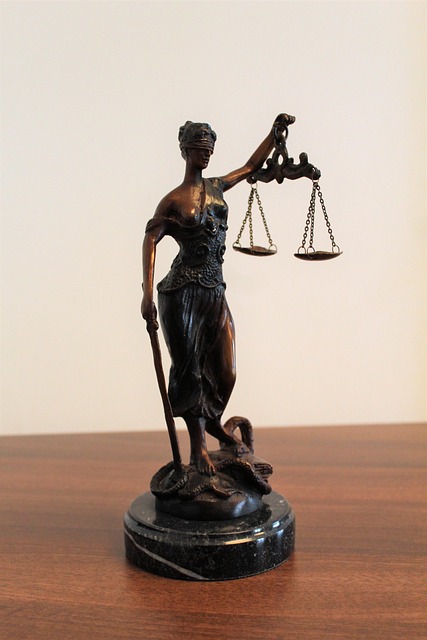In New Hampshire, autodialer laws protect residents from unwanted telemarketing calls on phones and smartphones. These regulations require explicit consent from consumers before automated calls and mandate compliance with the state's do-not-call registry. Both smartphone users seeking protection and businesses (including telemarketers) needing legal guidance to avoid penalties should consult a local lawyer specializing in consumer rights and telemarketing laws. If your rights have been violated, document and report the calls, while consulting a specialist for legal options.
“Salem, NH, residents are navigating a complex web of autodialer laws designed to protect against unwanted phone calls. With telemarketers increasingly targeting phone, cellphone, and smartphone users, understanding New Hampshire’s strict regulations is crucial. This article delves into the legal framework affecting telemarketers, offering insights for both consumers and those seeking representation from a lawyer. By exploring key provisions and your rights, we empower Salem residents to protect themselves from intrusive calls.”
Understanding Autodialer Laws in New Hampshire
In New Hampshire, autodialer laws are designed to protect residents from unwanted phone calls, specifically those originating from telemarketers using automated dialing systems on both landlines and cellphones. These laws, overseen by the state’s Attorney General, regulate when and how businesses can use autodialers to contact consumers for marketing purposes. Understanding these regulations is crucial for both telemarketers and smartphone users alike.
For telemarketers operating within New Hampshire, obtaining explicit consent from recipients before making automated calls is mandatory. This means that individuals must opt-in to receive such calls, often through clear and concise opt-in mechanisms. Additionally, businesses must ensure their dialing systems comply with the state’s do-not-call registry, respecting the privacy and autonomy of New Hampshire residents by allowing them to choose when and how they are contacted. A lawyer specializing in telecommunications law can help guide businesses on navigating these complex regulations to avoid legal repercussions.
Who Does the Law Affect? Phone, Cellphone, and Smartphone Users
In New Hampshire, the autodialer laws are designed to protect phone, cellphone, and smartphone users from unwanted telemarketing calls. This legislation affects both residential and business telephone lines, ensuring that individuals can enjoy their privacy and peace of mind while on their devices. The law specifically targets automated dialing systems, often used by telemarketers, that make unsolicited phone calls in an effort to sell products or services.
Whether you’re using a traditional landline, a mobile handset, or a smartphone, if you reside or conduct business in Salem, NH, these laws apply to you. If you’ve experienced repeated unwanted calls from autodialers, it’s advisable to consult with a local lawyer specializing in consumer rights and telemarketing regulations to understand your legal options and protect yourself against such intrusions in the future.
The Role of a Lawyer in Navigating Telemarketer Regulations
In the realm of telemarketing regulations, especially with the constant evolution of communication technologies, a lawyer plays a pivotal role in ensuring compliance and protecting consumer rights, particularly in states like New Hampshire. With laws surrounding phone, cellphone, and smartphone use becoming increasingly complex, engaging the services of a legal professional who specializes in these areas is essential. They can offer guidance on navigating the intricate web of rules that govern telemarketers, ensuring your business operates within legal boundaries.
A lawyer specializing in this field can help businesses understand and adhere to New Hampshire’s specific regulations regarding autodialers and robocalls. They can assist with crafting consent forms, implementing do-not-call lists, and establishing protocols for caller identification. Moreover, should any disputes or legal challenges arise related to telemarketing practices, having a lawyer by your side enables you to defend your rights and interests effectively.
Key Provisions of New Hampshire's Telemarketing Laws
In New Hampshire, telemarketing laws are in place to protect residents from unwanted phone calls and ensure fair practices by both telemarketers and consumers. These regulations cover various aspects of phone marketing, including restrictions on certain types of automated calls and requirements for obtaining consent. One key provision is that telemarketers must obtain verbal permission before placing calls to a consumer’s cellphone or smartphone. This means that if you do not explicitly give your consent, you should not receive unsolicited sales calls on your mobile device.
Additionally, New Hampshire law dictates that telemarketers cannot use automated dialing systems without first providing clear and conspicuous disclosure of their identity and the purpose of the call. They must also include an opt-out mechanism in each call, allowing recipients to easily request cessation of future contact. This empowers residents to take control of their phone communications by setting boundaries on marketing efforts. If you believe your rights have been violated by a telemarketer or lawyer conducting business over the phone, it’s important to understand these laws and your options for seeking recourse.
Protecting Your Rights: What to Do If You're Targeted by Unwanted Calls
If you’re receiving unwanted automated calls on your phone or smartphone, know that New Hampshire has laws in place to protect you from telemarketers. According to the New Hampshire Attorney General’s Office, it’s illegal for telemarketers to use an autodialer to make prerecorded or artificial voice calls without prior express consent. If you’re targeted by these calls, document the details—including the caller’s number and the date and time of each call—and save any voicemails or messages.
Consider saving evidence such as screenshots or recordings if possible. Then, report the unwanted calls to your local law enforcement agency and the New Hampshire Attorney General’s Consumer Protection Bureau. You can also consult with a lawyer specializing in telemarketer cases to understand your rights and explore legal options for recourse.


